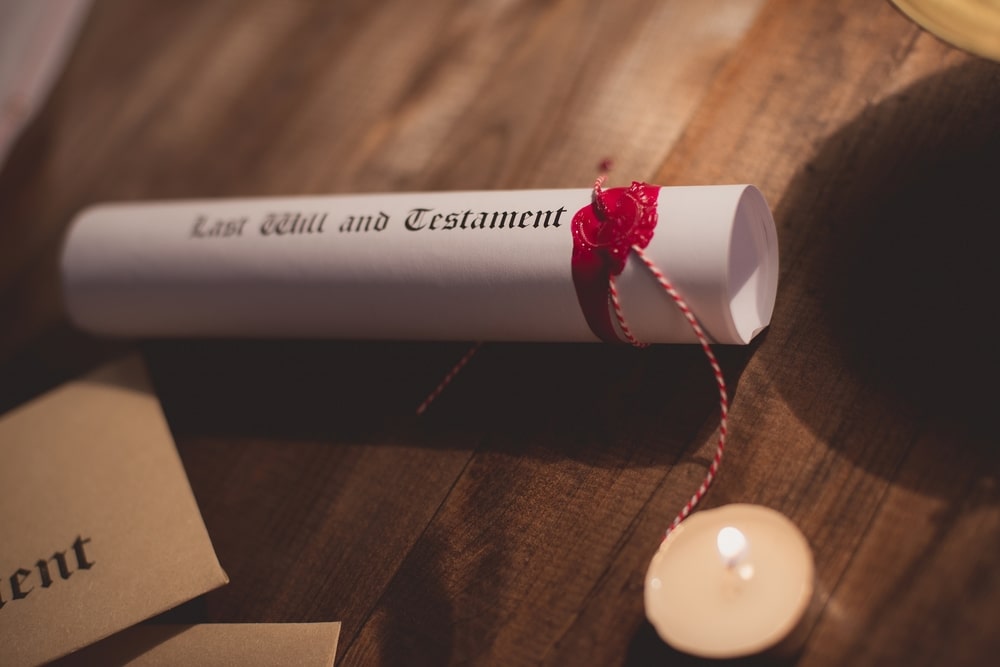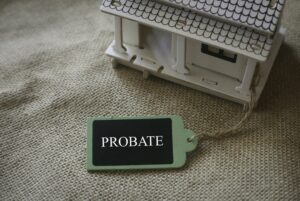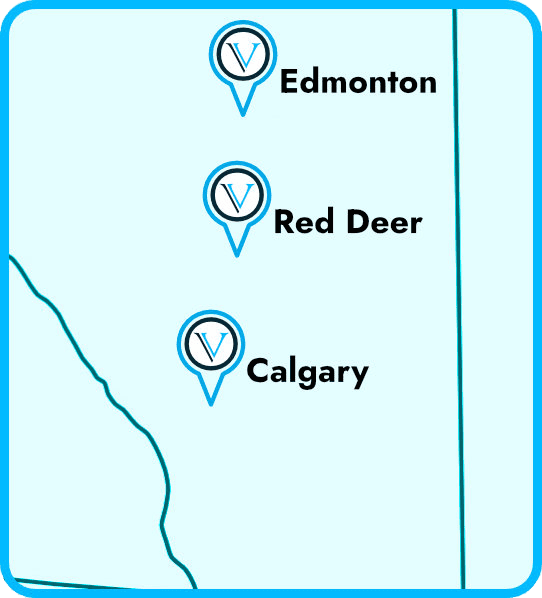
If you have been named as the personal representative in someone’s will, you may need to apply for probate. It is important to understand your role and responsibilities as a personal representative, what probate is, and how it is impacted by the nature of the assets in the estate.
If the estate is complex, involves different types of assets, or if you are unsure about how to administer the estate, it is prudent to seek legal advice.
Learn More → How to contest a will in Alberta
What is Probate?
Probate is the legal term for the court process that confirms the authority of a person, such as the personal representative named in a will, to administer the estate. Whether probate is necessary depends on the assets and debts of the estate.
In order to proceed to distribution of the deceased’s estate, a personal representative normally applies to court for an order called a grant of probate. The grant authorizes the personal representative to take possession and control of the estate assets and to do anything in relation to the property that the deceased person could have done. It also confirms the validity of the deceased person’s will.
If a person dies with no will, certain individuals, such as the surviving spouse or partner, the deceased’s children or grandchildren, or other relatives, can apply for a grant of administration to authorize them to deal with the estate. The process is substantially similar to obtaining a grant of probate and the same considerations apply to the estate assets.
When is probate required in Alberta?

Some assets from the estate do not require probate but if a financial institution or the Land Title Office are involved, probate is usually required before any transfers can be made to beneficiaries.
These institutions protect themselves before releasing any funds or title by requesting a grant of probate that formally recognizes the will as the last will and the personal representative as legally entitled to act on behalf of the deceased.
You can expect to have to probate a will in Alberta if any of the following apply:
- There is no surviving spouse
- The assets (especially real estate) are in the name of the deceased only
- Substantial amounts of money are in bank accounts/investments
- Questions have been raised about the validity of the will
- The estate is the beneficiary of benefits from registered retirement plans
A general rule of thumb is: the larger the estate, the more likely probate will be needed.
Some small estates, which are very simple to execute, can be distributed without a grant of probate being issued. In some cases, a surviving spouse becomes the sole owner of assets in the estate, since the assets are already in both names.
Read More → Digital Assets Upon Death in Alberta
What are the duties of a personal representative?
In Alberta, the term “personal representative” used to mean an executor, administrator or judicial trustee of a deceased person’s estate. The duties of a personal representative are outlined in the Estate Administration Act, and include:
- identifying the estate’s assets and liabilities (debts),
- administering and managing the estate,
- satisfying the debts and obligations of the estate,
- and distributing and accounting for the assets of the estate.
A personal representative must distribute the estate as soon as practicable after the death of a testator.
Does real property require probate in Alberta?
To transfer real property to beneficiaries in Alberta generally involves approval from the Land Title Office.
This applies to any property that the deceased owned as a sole owner or as a tenant in common.
The exception is when a deceased person was a property owner as a joint tenant. In effect, the property forms no part of the deceased’s estate in such cases. The joint tenant has a right of survivorship, meaning that the property can pass directly to the other tenant simply upon completion of the necessary forms.
Complexities may arise if the deceased person owns property in provinces other than Alberta (or overseas) as local estate laws will apply to the transfer of this property.
Assets That Are Inside the Estate
Assets “inside” the estate are those that need to be distributed according to the deceased person’s will. Most of these will be subject to probate.
For example, probate will be necessary if a personal representative needs to interact with the Land Titles Office – in other words, if the deceased owned real property such as homes, land or cottages. The Land Titles Office will not permit the transfer or sale of real property unless a grant of probate is provided.
Probate is also necessary if the personal representative will need to deal with assets held by a financial institution, such as bank or investment accounts and safety deposit boxes. The financial institution will not be allowed to give the personal representative access to the deceased’s accounts without the grant of probate.
Note, however, that if the deceased owned any of these assets jointly with someone else, the form of ownership will also affect whether probate is necessary. If the deceased owned an asset – for example, a home – jointly with someone else as tenants in common, the deceased’s share of the home becomes part of the estate upon their death, and probate is required before it can be transferred to someone else. This is not the case if the parties owned the asset as joint tenants.
More information about the differences between joint tenancy and tenancy in common is available here.
Assets That Are Outside the Estate
An asset is considered “outside” the estate if it passes directly to the beneficiary outside of the deceased person’s will.
For example, if the deceased person’s life insurance or investment account names a specific beneficiary, the law allows distribution of those assets to be carried out directly. Such assets are considered to be outside of the estate and probate is not necessary.
Another common example is when a deceased person owned property together with someone else in the form of a joint tenancy – for example, a jointly owned home or a joint bank account. Under a joint tenancy, ownership of the deceased’s property automatically passes to the surviving owner upon death. Probate is not necessary to carry out that transfer.
In addition, assets that are held in a trust, rather than personally by the deceased, are not subject to probate. Where the deceased has structure his or her estate by placing assets in a trust, those assets are not considered to form part of the estate, and instead remain in the trust, and continue to be administered by the trustees.
Do financial assets usually require probate in Alberta?
If the owner of a financial asset has nominated a beneficiary in the event of his or her death, this may override any stipulations made in a will.
Assets like RRSPs, TFSAs and insurance policies do not form part of the estate of the deceased. Therefore, probate is not required for the transfer of this asset after the death of the owner.
If a financial asset is owned in joint tenancy (with a spouse, for instance), it passes directly to the surviving owner. In such cases, the institution in question will likely request only a copy of the death certificate to release the asset.
If you are the personal representative of an estate and in any doubt, simply ask the institution what is required to proceed with the transfer of assets and you will be advised whether a grant of probate is required.
What is the process for probating a will?
To probate a will in Alberta, the personal representative must locate the original version of the latest will and then apply to the court for probate.
The application for probate must include:
- The original version of the will
- The date/location of the birth and death of the deceased
- A detailed list of all the assets and debts of the deceased
- The names, birth dates and contact details of the beneficiaries
After you have submitted your application, the court will review the documents. This may take some time but if everything is in order and the court has no further requests, a grant of probate is issued.
This process does not generally require a court appearance in person from the personal representative.
How can a probate lawyer help you?
Creating an inventory of an estate’s assets can be a complex task. It is important that personal representatives proceed carefully and accurately, as they can be held responsible for the mismanagement of estate assets, including any mistakes in distributing those assets.
Wills and estates lawyers have in depth knowledge and experience navigating the probate process, including the procedural rules that must be followed, and an understanding of how other areas of the law, including tax, family, trusts, and insurance law can impact an estate administration. A lawyer can help personal representatives interpret a will, advise whether a grant of probate is necessary, and identify the steps to take to properly dispose of the estate.
A wills and estates lawyer can also help individuals properly draft their wills and plan their estates with the probate process in mind, including deciding whether it makes sense to consider structuring their affairs in a way that reduces or avoids probate.

We currently have three offices across Alberta — Edmonton, Calgary, and Red Deer. However, we serve the entire province of Alberta. We also have the infrastructure to work with any of our clients virtually — even the furthest regions of Alberta.
Call us toll-free at 1-877-448-3131 to get routed to the best office for you or contact us online to schedule an appointment.
We also have a dedicated intake form to help you get the ball rolling. Our intake team will review your specific case and advise you on the next steps to take and what to expect moving forward.
Our offices are generally open 8:30 a.m.—5:00 p.m., Mon—Fri.


Colin Flynn
WILLS and ESTATES LAWYER
Colin is an estate lawyer practicing in the areas of Estate Litigation and Disputes. He emphasizes developing trusted relationships with his clients, ensuring they feel comfortable and at ease sharing the subtleties of their circumstances.

